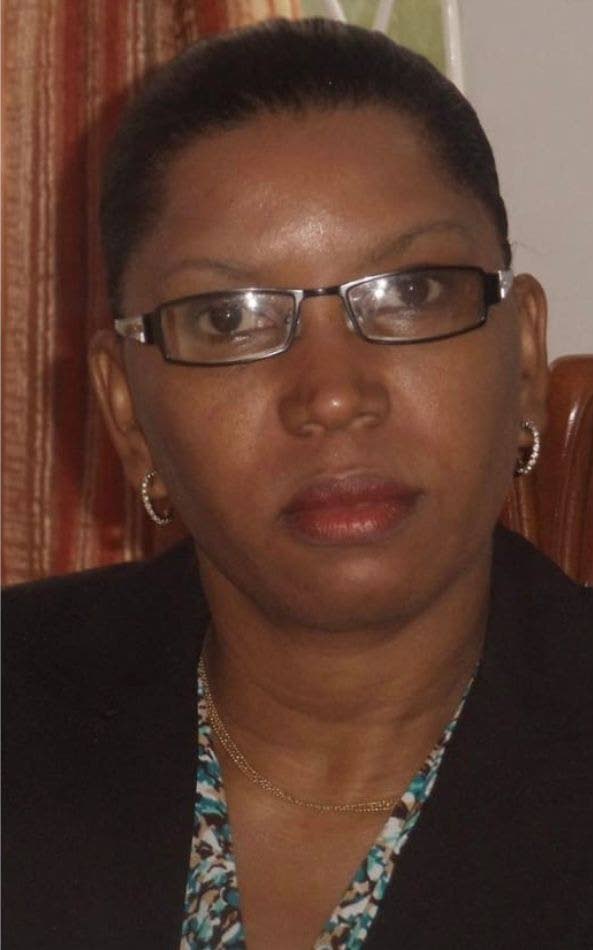A cry for help: Children’s Authority sees increase in challenging behaviour

During the pandemic, the Children’s Authority has noticed an increase in the number of “children displaying challenging behaviour”, who need more supervision than parents or guardians can handle.
These children frequently disobey their parents’ orders, routinely do not attend school, regularly cannot be controlled by caregivers, act in a way that is dangerous to themselves or others, or have committed an offence applicable only to children.
Elizabeth Lewis, acting deputy director of Legal and Regulatory, told Sunday Newsday as a result, the authority needed to readjust in order to provide the best support for those children.

Therefore, in June 2021, it restructured its programming and engaged its Child Justice Unit in dealing with and responding to children in need of supervision, previously referred to as “beyond control children.”
“For obvious reasons the name changed because it was recognised they are children who would require a lot more supervision and assistance as opposed to terming them ‘beyond control.’ Because they can be controlled, it’s just that they have to be provided with the proper support and interventions.”
Keisha Mitchel-Daly, manager of the Child Justice Unit said the organisation gets reports of children displaying challenging behaviour through its Registry Unit where parents go directly to the authority to get help, or through court orders.

“Through the Registry Unit, the authority will be providing assistance without the intervention of the court. We try to encourage parents and families to focus on resolving their problems and working out the challenges they are facing within and using the support networks of the community as well as services like the authority and other NGOs.”
She explained that children in need of supervision are categorised by the courts. So even if a child displays the behaviours listed above, they would not be categorised as such unless a parent or guardian applies to the courts for assistance and the court deems them children in need of supervision and orders particular services from the Children’s Authority.
She said from May 18, 2015 to August 31, 2021, the authority received about 30,000 cases of which 5.9 per cent were children in need of supervision. She added that, from October 2018 to October 2019, 37 per cent of cases were reported for substance abuse, 25 per cent for aggressive behaviour such as bullying, intimidation, and verbal fights, 36 per cent were involved in physical fights, and ten per cent were involved in gang activities.
She stressed that the numbers are not a full representation of what is actually happening in the country as many cases are not reported.
“As such, we haven’t seen a spike of applications for children in need of supervision. Rather, we’ve seen a spike in risk factors and the conditions through which the cases are coming to the attention of the court.
“This doesn’t stop the authority from providing these services if the child has come to our attention outside of the court.”
Some of those risk factors include truancy and “absconding from home” and parents seeking placement options for children.
She added that, during the pandemic, the authority has seen an increase in placement breakdowns where the individual, or facility with which the child was placed, could no longer keep the child because of their behaviour.
There was also an increase in the resurfacing of old applications that were dormant and on their way to being closed. In these cases, the child had already gone through treatment and placement and was doing well but the child relapsed and was once again presented to the court or the authority.
Marlon Bascombe, acting manager Investigation and Intervention Unit, North and East Zones agreed that the pandemic has exacerbated the psycho-social factors in homes.

However, he said children’s challenging behaviour could be a symptom of a greater problem.
As such, he explained when the authority gets a report through the Registry Unit, the staff conduct a psycho-social investigation to identify the root of the issue which can include abuse, mental health issues, gang affiliation, drug use, learning disabilities or more.
Some of the children with mental health issues are assessed by the children’s ward at St Ann’s Psychiatric Hospital. He said the most common issues are conduct disorders, anxiety, depression, substance abuse, and attempted suicide.
Also, most of the children undergoing drug treatment were ages 14-17. Many were from lower socio-economic groups, hotspot communities, and 80 per cent were male.
He noted that there are similar occurrences throughout the country but they are not always reported to the authority or the court system.
After determining the source of the problem, the case worker would develop a case plan to guide the initial intervention.
“The intervention may take the form of psychological support in terms of seeing a therapist, we may assist in re-enrolling the child in school or a psycho-educational assessment. If there are any medical needs we try to support with that.
“If there is a need for financial assistance we would be reaching out to the Ministry of Social Development to assist with same, sometimes we may source hampers to meet immediate needs, encourage families to connect with faith-based organisations or shelters – whatever resource we could get to support the family.”
If the family is not in a position to manage the child’s behaviour, the authority will try to move the child elsewhere.
Mitchel-Daly said the authority would first look to other suitable family members to house the child and if not, then possibly place them with a legal guardian, in foster care or in a community residence. All the while the authority would work with the original family to repair relationships.
Since a child does not become “beyond control” overnight, the authority tries to “build the support factors” in the family so the situation does not reach crisis levels. It also works with the Student Support Services Division or the child’s school to provide support, monitoring and to note any progress.
“Sometimes the family just needs support and guidance, so our focus and, or goal, is to maintain that family structure as much as it’s possible, and as much as it’s beneficial to the child. We want to develop the skills and capacity within the child and the family to cope with some of the community issues and circumstances.
“So, we encourage the family to have the child involved in pro-social activities like a youth club, some sort of community group or school activities, so the child has exposure, not only to the community in which they live, but a wider range of lifestyle options.”
Lewis added that behaviours are usually influenced by two broad categories – push and pull factors.
Push factors encompass anything happening in the home that pushes the child away from the family while pull factors are people, things and situations attractive to the child.
“Here we see a combination of push and pull factors. If life at home is uncomfortable, if there are no boundaries, if there is poor supervision, there is the issue of poverty, emotional, physical and sexual abuse, these can be considered push factors.
“And a child who is seeking attention and support elsewhere may, of course, end up with the wrong crowd, one exposing them to use or sale of illegal drugs and other negative behaviours.”
Bascombe urged parents and guardians to reach out to any support available to them such as family, religion, community, the public system, NGOs, National Family Services, or the Children’s Authority.
“Early detection is best so we are not in crisis mode by the time the situation is reported to the authority or the court. It’s important for parents to try to develop a level of relationship with their children, such that they notice when something is wrong, whether it be an instance of abuse that may be happening to the child, or the child’s behaviour has changed to the point where we wonder if they are becoming beyond control.”
He also advised parents to do their best to monitor what their children are doing online including videos, music, video games, social media, and chats in online games as they could influence a child’s thinking and behaviour.

Comments
"A cry for help: Children’s Authority sees increase in challenging behaviour"